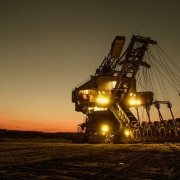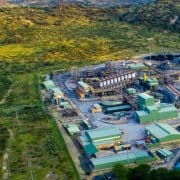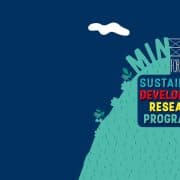|
Getting your Trinity Audio player ready...
|
By Thato Mahlangu
Mining-affected communities are among the most vulnerable in our country. As part of its work in the mining sector, Corruption Watch (CW) recently visited three affected communities in Newcastle, KwaZulu-Natal. Our visits highlighted the particular vulnerabilities these people live with daily.
The CW team, with Mining Affected Communities United in Action, held a three-day imbizo with residents of Allen Farm, Embabane, and Hattang.
Legal researchers Mashudu Masutha and Matshidiso Dibakwane said the aim of the visit and imbizo was to empower communities who feel disempowered.
“Some of the community members are often left in the dark by mining companies and the government and are directly affected by the mining activities which take place in communities which they live in. Some of them don’t know their rights or what recourse they can take.”
What CW discovered during the visits
“Communities’ health and environment is not been taken into consideration and they are not consulted when mining activities take place on their land. The residents claim that they can’t access royalties that are due to them and there is little (if any) economic benefit for them,” said Dibakwane, adding that most of these communities, including the three CW visited, have good mining prospects but at the same time, face great danger because of these same prospects.
“Most of the residents with whom we have engaged over the course of our work have been directly affected by mining activities. They are not even consulted when the mining activity takes place, which leaves them disempowered,” she said.
Masutha said mining communities in South Africa face different challenges, but in the Allen Farm community, even people’s cultural practices and traditional rights were violated by mining companies and the government. Cemeteries are sometimes moved without consent, and where consent was obtained it was under duress, while no form of compensation was granted as required by law. The members were also traumatised at the manner in which the removals were conducted.
“Some of the people didn’t agree with the relocations of the cemeteries which led to some graves to sink as mining operations continue. Coal mining causes the land to sink.”
In addition, the impact of mining on the environment, water, and people’s health is disregarded. For example, residents have reported pollution but little has been done by the municipalities.
Masutha said she suspects that there has been as much muting of people’s voices as there has been violation of their rights.
“Here we have a public sector that is aiding private interest. This is seen through police interferences which seek to protect the mining companies blindly. You have a situation where communities know the corruption exists and are unable to enforce their rights, there are allegations of corruption and collusion by the government, mining companies, the police, businesses, and traditional leaders, that prevents them from exercise those rights,” she said.
Allegations of police and political interference
Residents have been complaining about many issues, but nothing is done.
“The locals report anything that affects them, but this seems to go unnoticed by the local municipal office or by ward councillors as there is political interference. The residents report and would later get verbally harassed or arrested by members of the police. There is really nothing they can do,” Dibakwane said.
Apart from the arrests and verbal harassment, community leaders and residents would face brutality in the hands of the police.
“We were told how some people, including whistle-blowers, have been killed by members for speaking out. The message is that they are ‘causing trouble’.”
The ‘trouble’ would range from community imbizos such as the one CW had with locals, to protests, sending delegates to approach the mines, and pickets.
No jobs for locals
During the visit, Masutha said, residents complained about the lack of job opportunities around mining operations. These are, in some cases, given to people from other places.
“Most affected groups are not regarded for employment purposes, instead, people from other communities are brought in to work on these mining projects.”
Residents who are faced with potential or active mining activities are forced to resettle and uproot graves, and there is significant interruption with their way of life. They are also concerned about the preservation of their heritage.
Economic activities, such as agriculture or hunting and gathering food and medicinal plants also get interrupted, Masutha said. The land surface after mining has been conducted usually leaves people unable to resume activities like livestock grazing, crop, and timber production, as some mining companies don’t rehabilitate the damaged land after use.
“People like Mrs Zwane told us that she was moved from an area where she could grow her own crops and care for her livestock, to an area which has limited access to water, air polluted by the dust from that comes from the mine, and unpredictable blasting which leaves homes cracked. That should tell you how much of an impact these mining operations have on communities,” Masutha said.
According to the Centre for Environment Rights (CER), mining activities can cause depletion in the supply of water, has the potential to cause pollute to the air, soil and water, and can destroy ecosystems in mining-affected communities. These abandoned mines can cause great damage to the environment.
“As of 2014, South Africa had approximately 6 000 abandoned mines from which acid water and heavy metals leak into the environment,” said CER in a statement.
Lack of administration of mining rights
Masutha said the visits and imbizos were meant to also look into the challenges faced by these communities in the administration of mining royalties.
“We found that there was little or no accountability when it comes to mining royalties, and no transparency over their administration. People who should be accounting to communities fail to do so because no one can fully hold them accountable.”
“CW hopes that these discussions help the communities to better understand how to address these problems. It is very important for communities to be engaged by all parties so they can understand how they stand to benefit or not benefit from mining activities.”
How CW intends to help vulnerable communities
According to Dibakwane, CW has identified specific problems that communities battle with and is in a position to give advice in terms of the mining laws on some of the reported cases.
“CW’s report on mining for sustainable development was distributed and explained as well a pamphlet on Khoisan Act by the Land and Accountability Research Centre. CW also received formal reports on corruption and will be investigating them further. CW further assisted representatives of the community in their interactions with mining companies.”
The organisation intends to visit more communities during 2020.







